| Extra
on CHARGED PARTICLE IN TIME-DEPENDENT ELECTRO-MAGNETIC FIELD |
Light_Atom-marked-2014.11.06.pdf Is the presentation with handwritten lecture comments and markings
Most of these are captured (and edited) below and commented further
This is roughly the structure of the index page which we touched in this lecture - see the capture just below
See also generally: ../2013_10_29/index.html Last year's lectures |
Eigenmodes for coupled
vibrations. (last lecture) see also 2013 lectures ../2013_10_29/index.html Algebraic Method for Harm. Osc. (see the notes!) Quant. th. of extended systems - fields Electromagnetic fields The Quant Th. of Elmag. Field Density of States Charged Particles In an Elmag. Field charge_in_elmag_marked-2014.11.06.pdf The Hamiltonian of Interaction |
| Emission of Radiation by
Excited Atom (see already the last lecture) see also http://web.ift.uib.no/~ladi/Fysisk/Teori/Pictures/Golden.html The matrix element reduction Dipole Approximation Detailed Evaluation of Emission rate |
The above table is roughly the structure of the index page which we touched in this lecture - see the capture just below
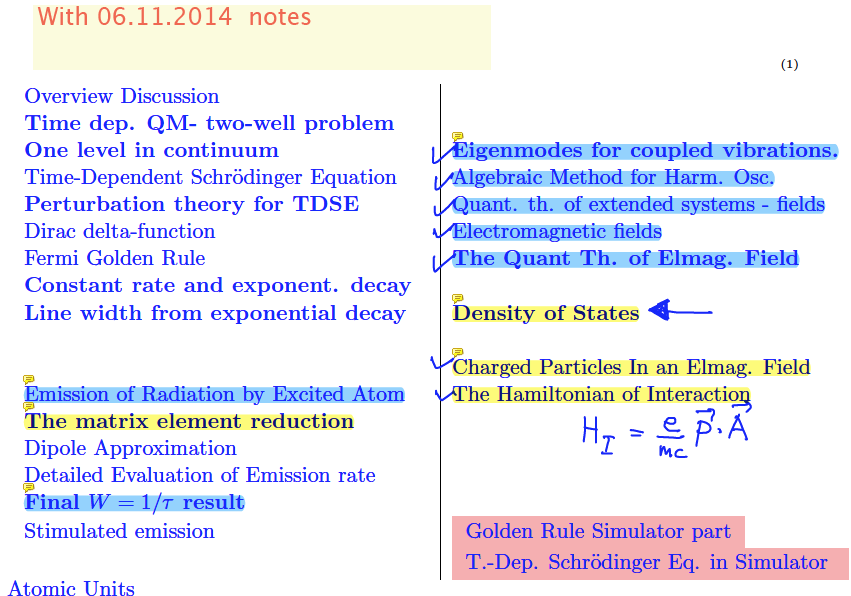
0000_notes-plan.png
CHARGED PARTICLE IN TIME-DEPENDENT ELECTRO-MAGNETIC FIELD
charge_in_elmag_marked-2014.11.06.pdf

0010_Lorentz_Force.png
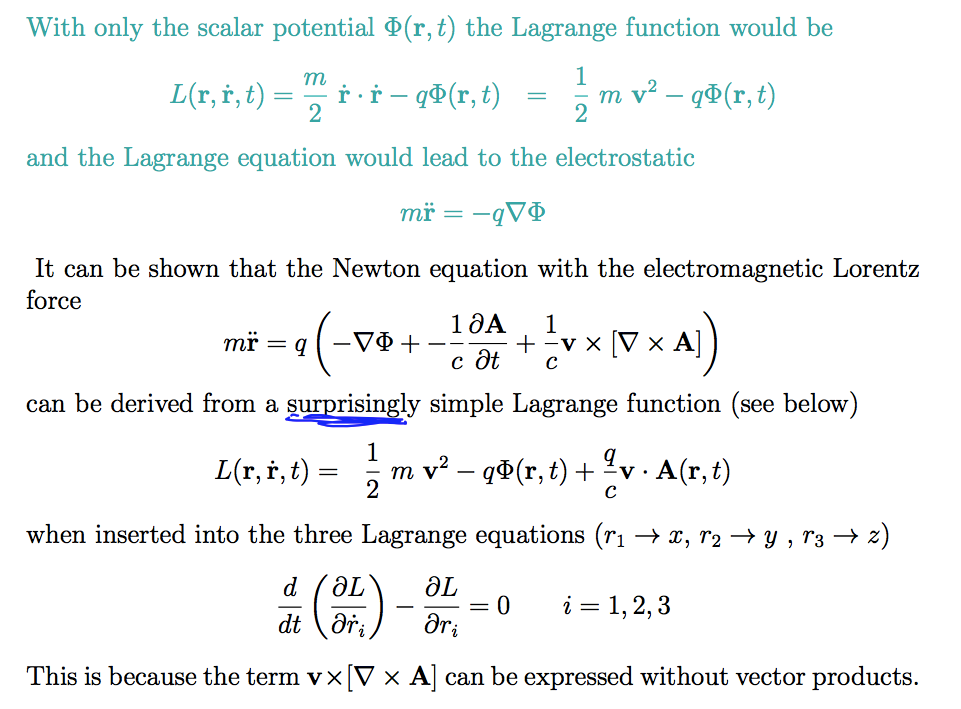
0020_Lagrange_for_elmag_to_hamilton_1.png
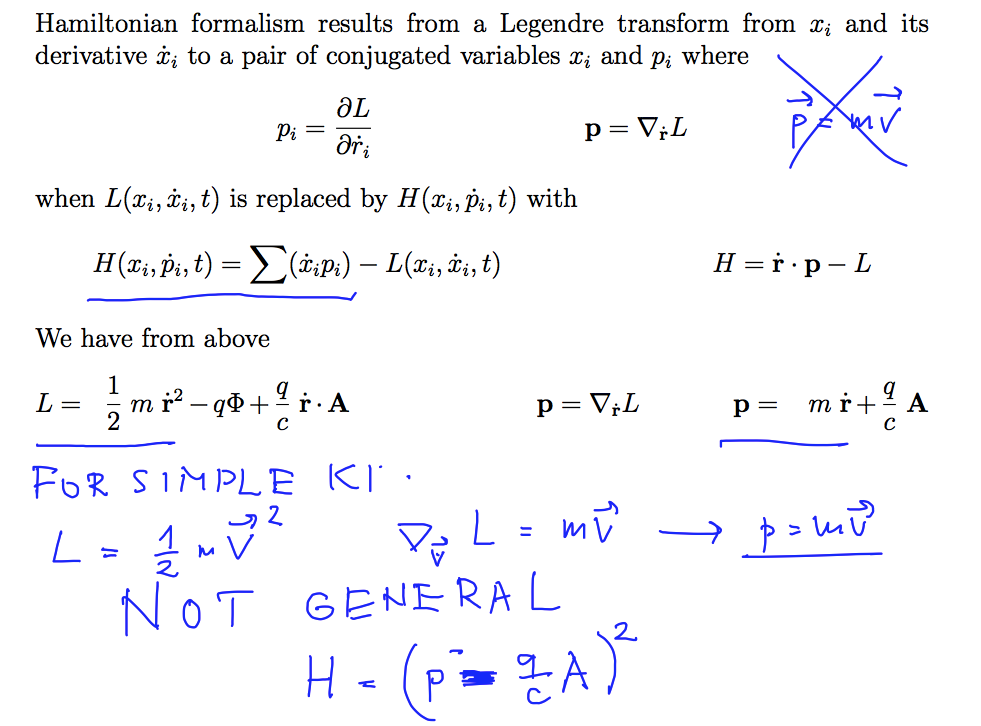
0030_Lagrange_for_elmag_to_hamilton.png
THE ABOVE - extra on CHARGED PARTICLE IN TIME-DEPENDENT ELECTRO-MAGNETIC FIELD
How to quantize the fields - find the EIGENMODES
Each EIGENMODE - independent HARMONIC OSCILLATOR
Each oscillator its CREATION and ANNIHILATION of QUANTUM
- Eigenmodes for coupled vibrations. (last lecture ../2014_11_04/index.html)
see also 2013 lectures
../2013_10_29/index.html
Algebraic Method for Harm. Oscillator in the notes
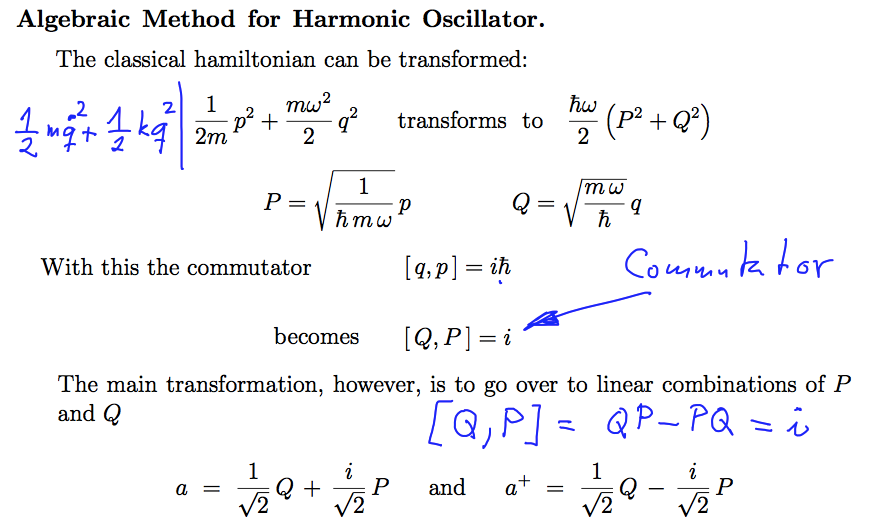
algebraic_HO_010.png
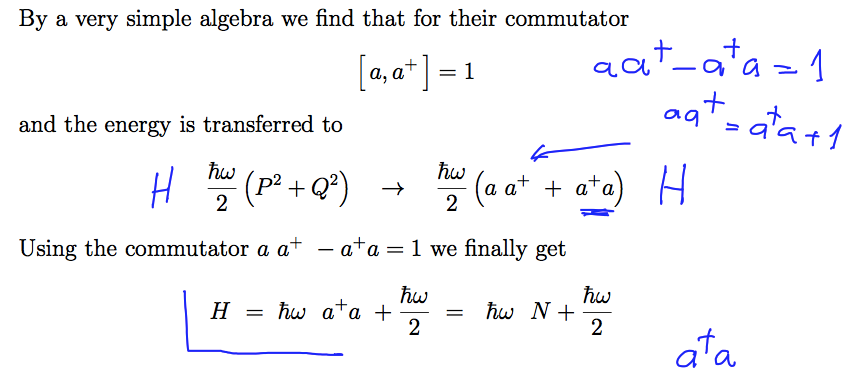
algebraic_HO_020.png
what are the properties of this operator?
Apply it - it then gives the "number of quanta"
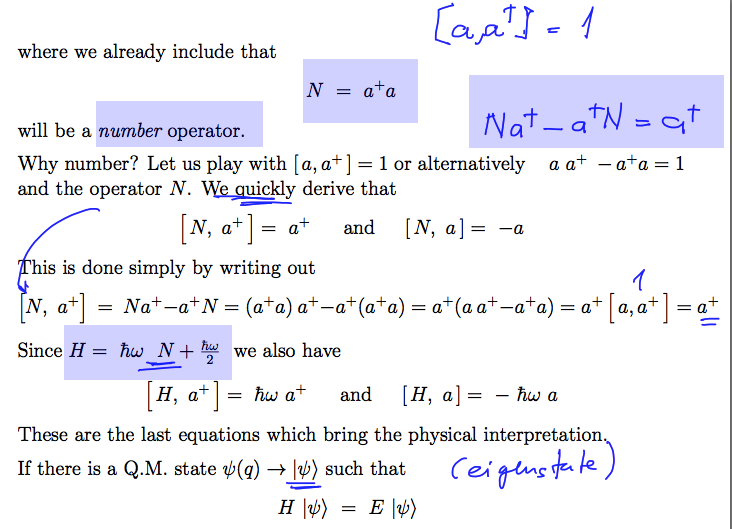
algebraic_HO_030.png
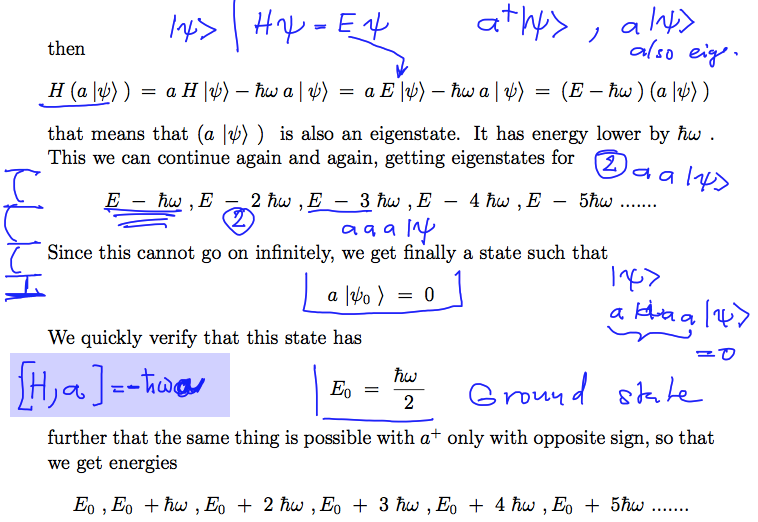
algebraic_HO_040.png
The states of the H.O. - or of the MODE of vibration ( wave)
Different numbers of quanta
Ground state - zero quanta present
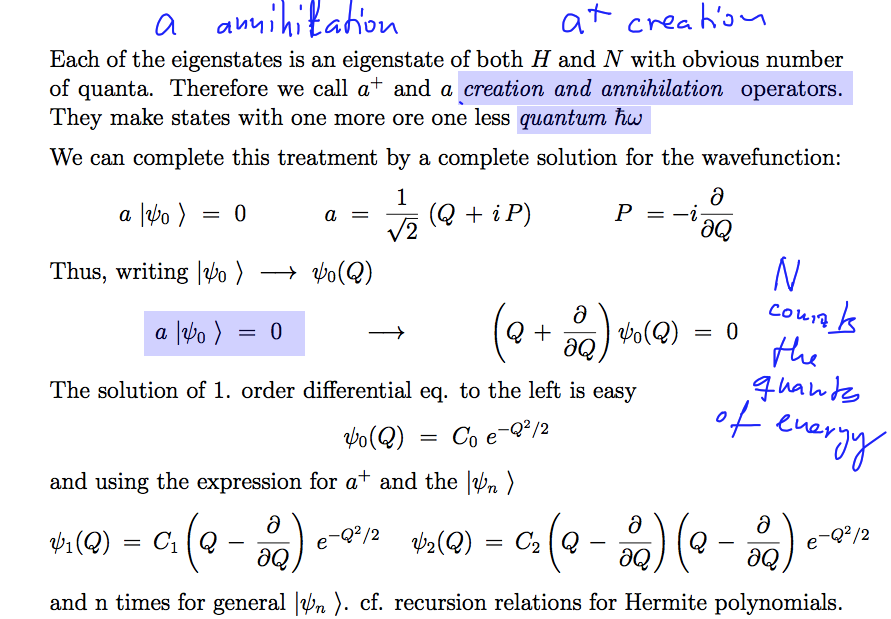
algebraic_HO_050_Creation_annihilation.png
QUANTIZATION OF ELECTROMAGNETIC FIELD
The energy expression - two ways (EQ. 41 - and the next slide )
A operator expressed in eigenmodes' creation and anninilation operators
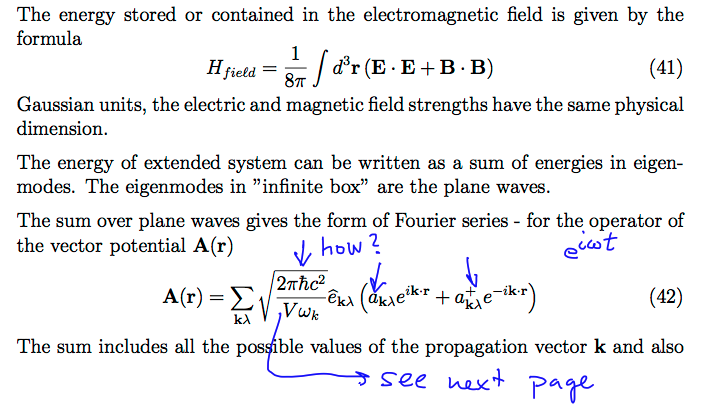
E001_vector_pot_operator_ELMAG_field.png
WHAT DETERMINES THE CONSTANT ABOVE ??
SEE NEXT SLIDE
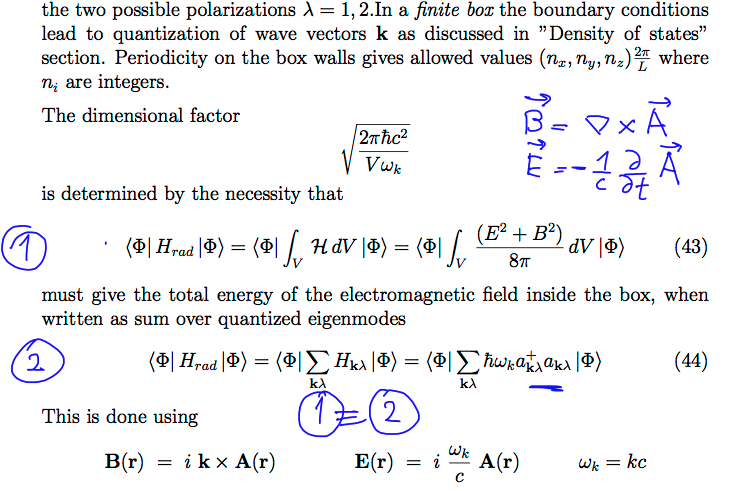
E010_determine_constant_fact_ELMAG.png
STATES OF THE FIELD - in terms of quanta of eigenmodes

E011.png
DENSITY of states
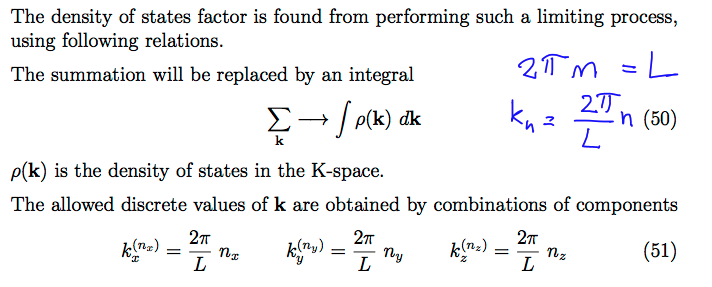
E015_Density_of_states.png
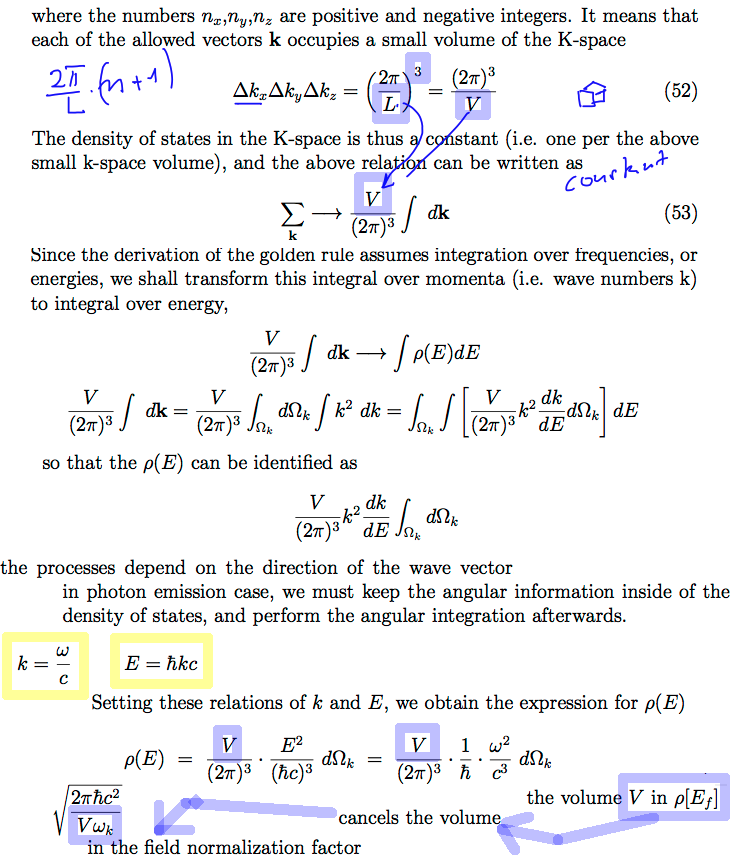
E018_Density_of_states.png
SEE THE GENERAL PART IN THE START
(additional background note charge_in_elmag_m
arked-2014.11.06.pdf )
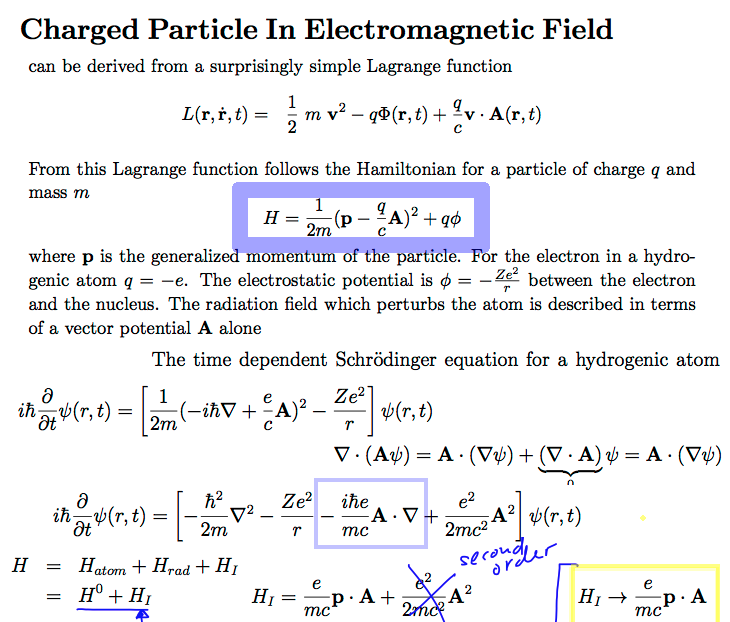
E020_charge_field_interaction.png
DIPOLE APPROXIMATION
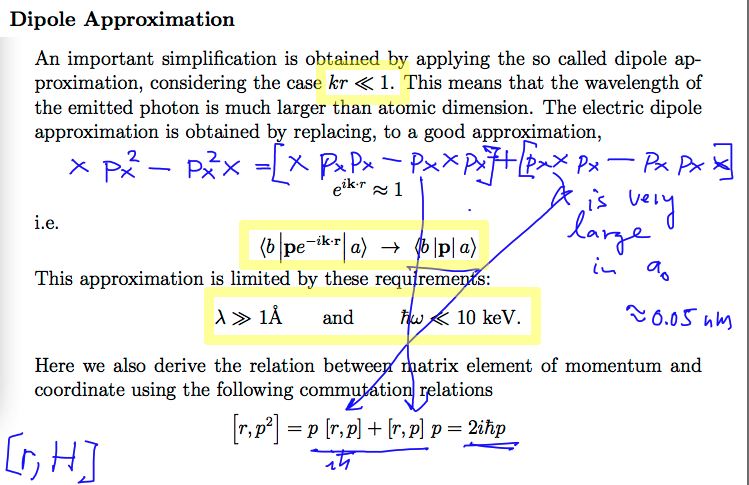
F_005_Dipole_approximation.png
DIPOLE APPROXIMATION both removes the wave-like factor and replaces "velocity" by position - dipole
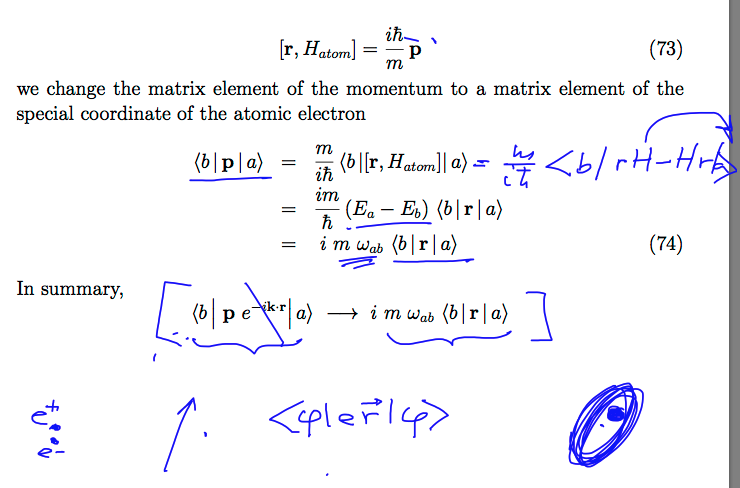
F_008_Dipole_approximation_R-M.E..png
above "drawing" - position - dipole - illustration induced dipole story ( electric field 'polarizes' atoms; induced dipole - position of the electron )
FINAL APPLICATION OF FERMI's GOLDEN RULE
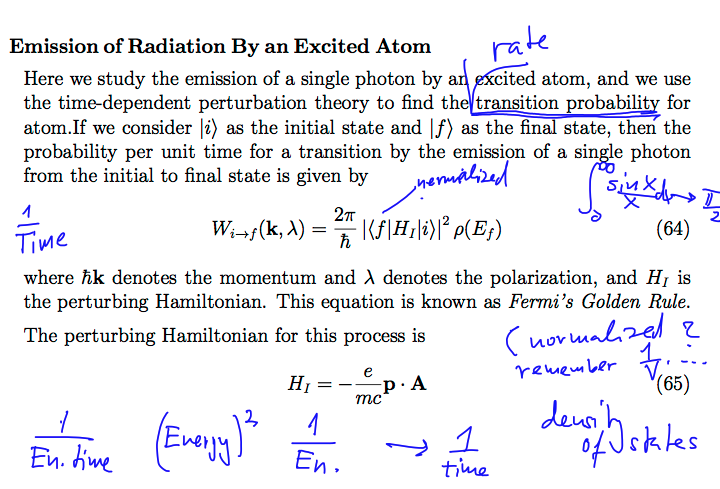 F_010_Emission.png
F_010_Emission.png INSERTED the interaction atom - field (electron - field )
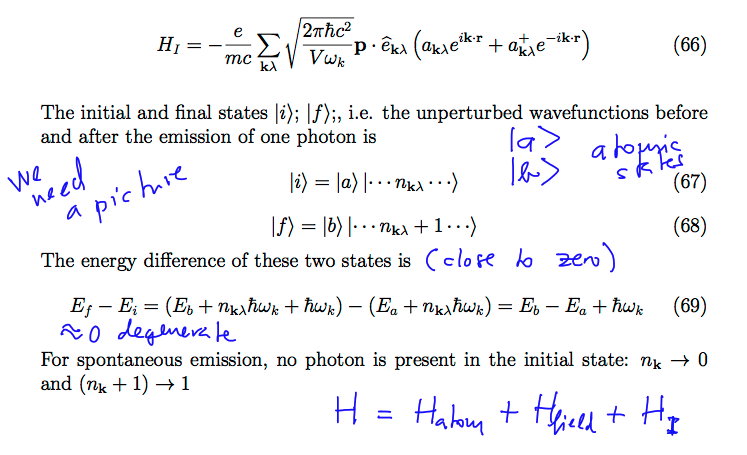
F_020_Emission.png
insert density of states result, constants
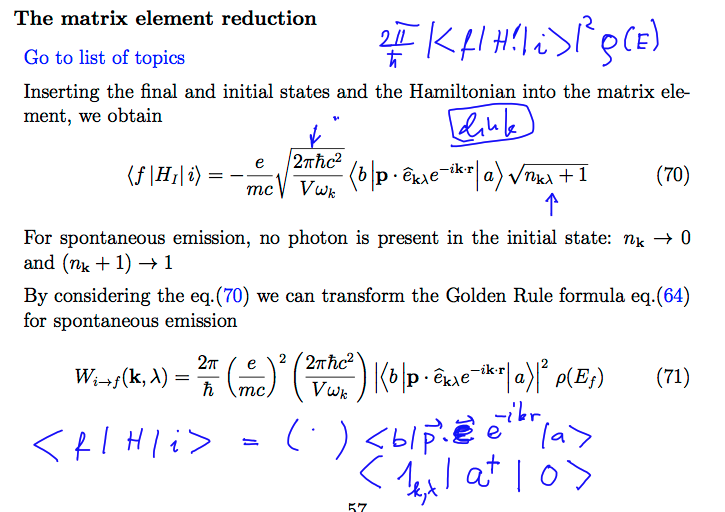
G_010-evaluation.png
THE OVER ALL STRUCTUR OF THE MATRIX ELEMENT
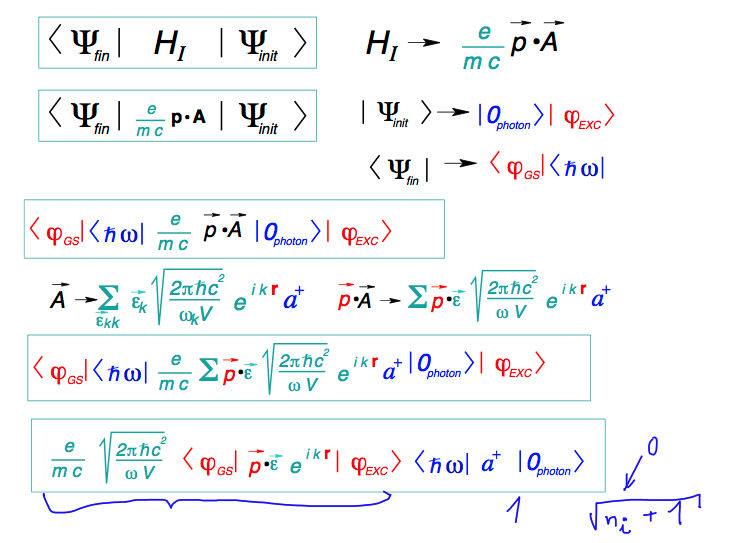
G_020-evaluation_MATRIX_ELEMENT.png
EMISSION IS DIFFERENT IN DIFFERENT DIRECTIONS ( THE DIPOLE VECTOR )
NOTE THE ANGULAR INTEGRATION - AVERAGING one slide further down
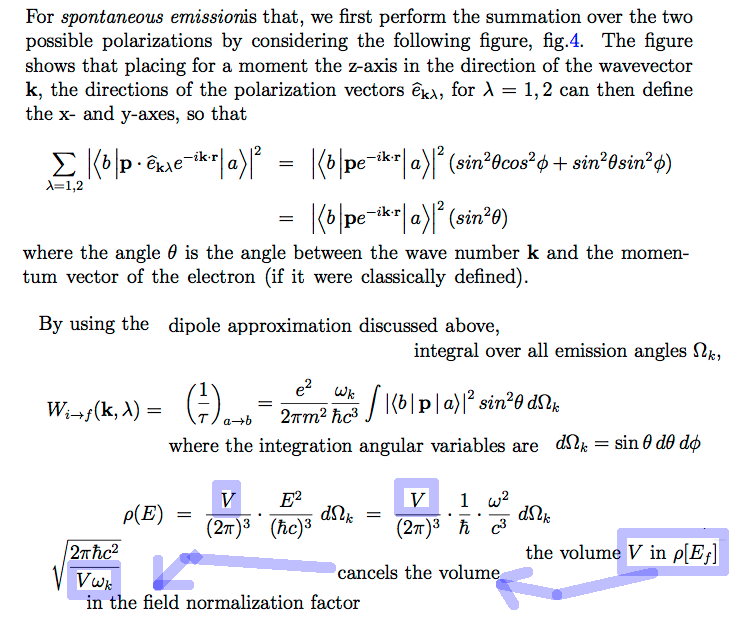
G_030-evaluation_with_anles.png
NOTE THE ANGULAR INTEGRATION - AVERAGING
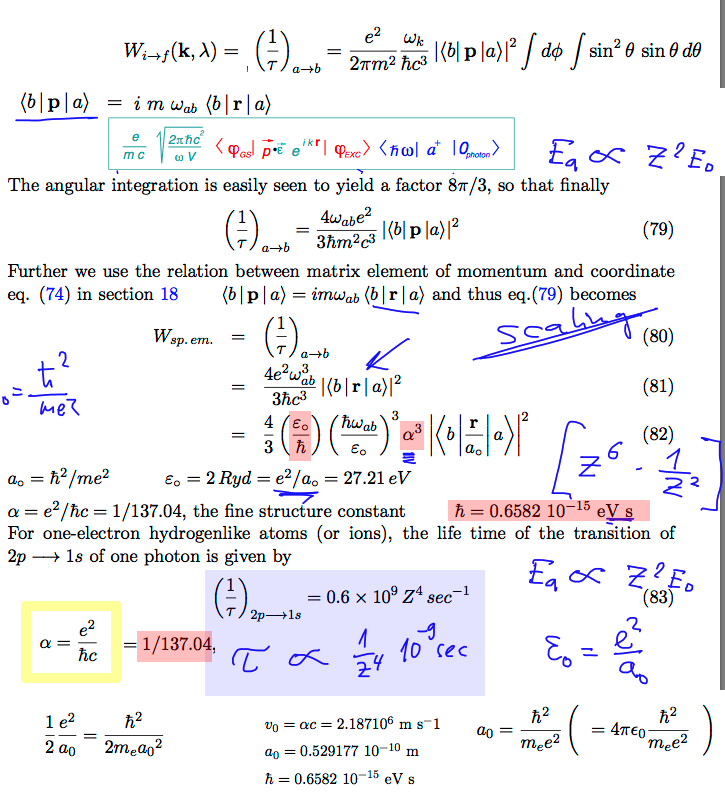
G_040-evaluation_final.png
The final result - HOW DOES IT SCALE with the atomic number Z